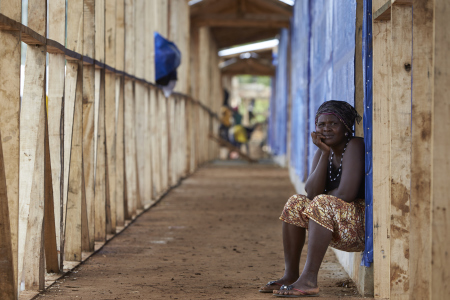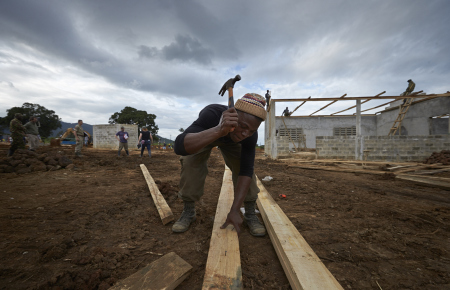Experts have warned that the number of Ebola cases worldwide could approach 1.5 million early next year unless measures to control the current outbreak, which is confirmed or suspected to have killed more than 2,800 people in West Africa so far, are urgently stepped up.
A report by the Centres for Disease Control and Prevention (CDC), the United States’ public health agency that tasks itself to “confront the challenges of 21st-century health threats”, the number of Ebola cases in West Africa alone could reach 1.4 million as early as January 2015.
The UK Department for International Development (DfID) believes that to defeat Ebola, 70 per cent of those who contract the disease must be isolated as soon as symptoms present themselves. A forecasting tool released by the CDC to calculate the trajectory of the disease and the impact of interventions also predicts that if approximately 70 per cent of patients are hospitalised or kept in a controlled setting and public health measures such as safe burial are used, the disease can be brought under control. Otherwise, the tool showed, cases will triple every 30 days.

The international community has reached out to global governments to respond to the crisis with mixed results. The UK, which is amongst the nations that has already supplied medical expertise, is taking a leading role by pledging to support the provision of 700 treatment beds, including a 92-bed treatment facility to be constructed and operated by military engineers and medical staff in Sierra Leone. The Government has committed £100 million, including direct funding to partners like the Red Cross and Médecins Sans Frontières (Doctors without Borders). In addition, on October 2nd London will host an international conference to encourage pledges from the international community.
The funding will help to:
- provide better health information including public health announcements for remote rural communities so they know how to avoid contracting the disease;
- expand the investigation, monitoring and tracing of new Ebola cases;
- fill critical gaps in front-line personnel by providing funding for clinicians and other experts;
- deliver counselling and support for children orphaned by Ebola;
- provide medical supplies and care for victims and relief packages including clean clothing for families affected; and
- ensure safe burial of victims.
DfID and the Wellcome Trust are also funding a global call for research, which could produce evidence to better manage the current outbreak and those in the future. The UK alongside Wellcome Trust and Medical Research Council has also co-funded clinical trials in the UK of a potential vaccine which could be pivotal to preventing outbreaks.
International Crisis Group (ICG), a Brussels-based non-profit NGO, has warned that, while countries like the US, UK, France, China and Cuba were ramping up their responses to Viral Haemorrhagic Fever by setting up Ebola health facilities and sending personnel, special attention also needed to be paid to Guinea-Bissau and The Gambia, countries near the epicentre, which both have inadequate health systems.











